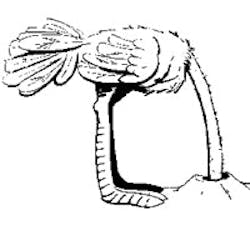This article was printed in CONTROL's November 2009 edition.
Admit it. Technology gets smarter by the day and many of us are afraid of it. No, I'm not referring to us being afraid technology might take over our jobs. I'm referring to our fear when it comes to adapting to new technology. If extraordinary engineers and automation designers are creating software and devices that can start our cars by placing a phone call, record or favorite TV show by going online, or turning on and off our lights or water sprinkler system from miles away, why are there so many of us resistant to adapt to technology? Change is good.
Energy Management as a Corporate Strategy
Learn about a framework from which management can develop an energy management strategy.
APC: A Status Report
Recommendations to improve APC project implementation and predictions about the direction of this technology.
OPC Technology Helps Maximize Return on Process Historian Assets
OPC helps maximize return on process history investments. Learn how.
Lipták continues his coverage on the different uses of artificial intelligence within the automation industry in his two-part story The Next Generation of Smarter Valves. Here, he takes a look at the improvements and changes expected when it comes to the design of self-diagnosis and smart control valves. He concludes that the overall advantage the industry receives from introducing AI to the plant environment outweighs the costly investments of time and money. Read part one of this article at www.controlglobal.com/articles/2005/377.html and part two at www.controlglobal.com/articles/2005/428.html.
Dana Blankenhorn, one of CONTROL's contributing editors, also talked about artificial intelligence and its uses within the industry. He focused on how AI allows process automation plants to become more efficient while cutting down costs and production time.
Learn more about St. Mary’s Paper Plant and its use of artificial intelligence by reading this article at www.controlglobal.com/articles/2004/329.html.
I don't know about you, but I think AI makes everything easier and more efficiently. I'm not afraid of adapting to new technology. Whenever I hear there is something new out there, that can make my life easier, I need to get it. I want to get it. Trust me, adapting new technology is a good thing. I just placed my name on the waiting list for the self driving RV. This allows me to get ready for work and eat my breakfast while on my way to work. Wait I just received an e-mail with a petition to develop teleportation, let me sign up for that too.
About the Author
ControlGlobal.com
ControlGlobal.com

Leaders relevant to this article:

